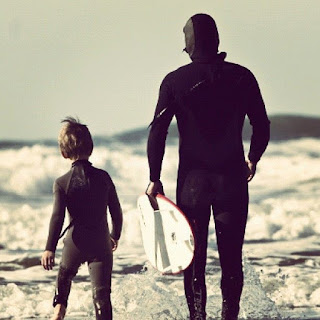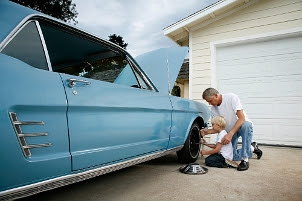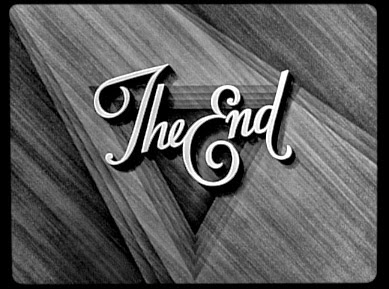 |
|
"And by the way, you know, when you're telling these little stories? Here's a good idea -
have a POINT. It makes it SO much more interesting for the listener!"
|
My wife and I
are on an extended vacation that traverses five states and a couple of countries. (Can
you vacation in retirement?) We started with meeting high school friends in
Carson City and then my wife’s brother in Garnerville, Nevada. Since many of
the Steve Dancy novels take place in and around Carson Valley, I always enjoy
visiting the area to get ideas and check up on how Jenny is doing. From there
we flew to San Diego for a week of surfing and beach-style laziness.
After SoCal,
we were supposed to return to Omaha for a week, but schedules got messed up, so
we stayed home only overnight before flying to New York. Well, not exactly.
Seems SouthWest had a computer glitch that turned every airport in the nation
into serpentine lines of anxious travelers trying to figure out a new way to
get from point A to point B. Due to family commitments, we had to get through
this goo of snarling humanity or miss our opportunity to see all six grandkids
together. Unfortunately, when we got to the front of the glacial line they told
us the only available flight to New York was two days in the future. Bummer.
Our son saved the day by booking us a car to drive us to Chicago for an early
morning flight the next day. As we tooled along the highway in splendid
exasperation, he even got all six of us flight reservations—my wife and me, my daughter, and her
three kids. Since it was seven in the evening, our driver assured us he could get us to
Chicago by 3:00 AM.
After a few
hours’ sleep at an airport hotel, the six of us boarded a crowded flight to
JFK. As a special treat for our 50th wedding anniversary, the kids had rented a
house in South Hampton. Unfortunately we arrived too late for the train or
jitney, so once again we piled into a mini-van for a sluggish ride out of New
York City on a Friday night.
Now things
came together beautifully. We arrived in time for a late grilled dinner in the
backyard. The grandkids, together again, went bonkers. They laughed and ate and
played and swam and generally made us feel old. A drink took the edge off,
another put us to bed.
The world
looked different after a good night’s sleep. We had four days ahead of us to do
nothing but try to keep up with six kids under twelve years old. We even went
surfing. Crummy wind-blown waves, but it was fun having three generations in
the water. I lost a bet with my grandson that I would catch the better wave,
but we had only wagered an ice cream cone, so I had enough money for the rest
of the trip. The experience reminded me of Warren Miller’s admonition that “you
only ski better than your kids one day in your life.”
All good
things must come to an end. On Tuesday evening, we took the jitney back to New
York. Our travel hobgoblin had not retreated into the woodwork. After leaving
the Jitney, we flagged down a cab to take us to our timeshare. (Hotel costs
hampered visits to see our NYC grandkids, so a few years ago we bought into a
timeshare-like arrangement.) The cab driver’s mouth dropped open when he saw
all the kids and enough luggage for Duchess Kate Middleton. Then he started
dancing in place and begged me to allow him to drive over to McDonalds to pee.
Having been there myself, I said yes. I didn’t know McDonalds was ten blocks in
the wrong direction. It was late, we were tired, and our cabbie took us on a
prolonged detour (meter off, of course.) I didn’t complain because we were
piled in well beyond the legal limit for a single cab.
Our next
travel adventure was beyond inconvenient, it was dangerous. In Times Square we
signaled for an Uber, but a pirate pretended to be our car. Dumb us, we didn’t
verify the driver’s name before jumping in. Trapped in gridlock, a small gang
of teenagers started banging on car hoods and then threw Pepsi on our driver’s
car. He immediately jumped out yelling and took after the boys. They jeered and
threatened him, so he returned to the car and I saw him pull a cheap steak
knife out of the driver’s door. Oh Shit! He brandished the weapon and the boys
went on to harass sane drivers. When he finally dropped us off, he delivered
the coup de grâce by demanding $30 for a twenty block ride. I had already seen
the knife, so I paid him sans tip and we bailed out as fast as we could.
I have a
chocoholic granddaughter, but instead of venturing back to Times Square to
visit the Hersey store, we decided to take a train to the mother lode of all
things chocolate, Hersey, Pennsylvania. By this time you would think we had
learned our lesson and stayed put. No way. Except for jostling crowds at Penn
Station, comatose Amtrak employees, rude train passengers, WAY-overpriced
snacks, and a first-time Uber car that ran around in circles because our driver
didn’t have a clue where to find the biggest amusement park in Pennsylvania and
felt looking out the window at big signs was a sign of weakness or something. The
trip was as pleasant as an emergency trip to the dentist. I exaggerate … a bit.
The good news is that once we arrived, everything went like clockwork and we
had a great couple of days wolfing down chocolate and getting the bejesus
scared out of us on rides engineered by sadists.
When we
returned to New York Penn Station, I lost it with a driver who yelled at my
daughter on the phone because we couldn’t find him. He kept telling her that he
was parked right behind the police. I asked him to look around and tell me
where he didn’t see police. He had no answer.
After our sullen journey, I over-tipped because I felt guilty for
yelling at him, only to discover that my daughter also tipped him heavily to
make up for her rude father.
We
celebrated our 50th anniversary with the kids early because for some
odd reason, school now starts in mid-August, and what we really wanted as a
gift was to see all of our kids and grandkids together. On our actual
anniversary, we decided to do our own private celebration in Paris. What seems
like a long time ago, I ran an operation in Paris. My wife joined me on many
business trips and it’s a city with a lot of memories for us. Because our
schedule got shoved forward, we are now waiting in NYC for our flight to the
City of Lights. After our travel experiences so far, I wonder about flying over
vast amounts of very cold water.
As I write
this, I am sitting quietly in my timeshare. My daughter and her family have
returned to Omaha. Our other grandchildren are still on Long Island. We see
little of our son in the city because he works day and night.
We are
alone. It’s quiet. It’s peaceful. We don’t travel again for another week.
I’m bored.

































